How to Connect Bitly as Data Search
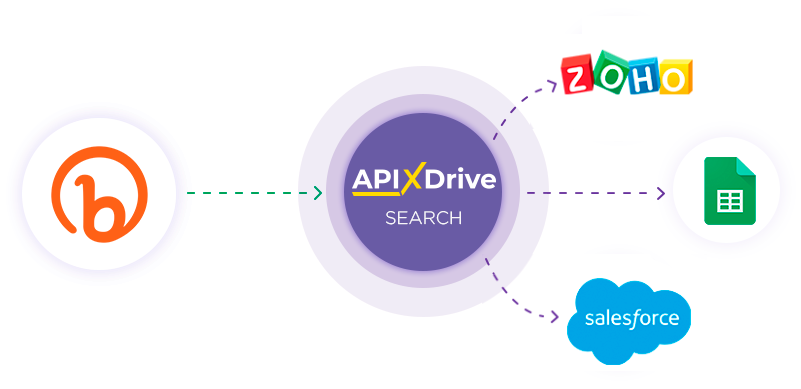
Integration with Bitly is implemented as a separate Search block, which can be placed between the Data Source and Data Destination. This will allow you to compress the resulting URL from the Data Source and use it in further work. Also, you will be able to compress URLs based on data from other systems and automate the process of interacting with data in conjunction with the services you use.
The function allows you to shorten links via Bitly for further work with them and update data.
Navigation:
Connecting Bitly as a Data Search:
1. What data can you get from Bitly?
2. How to connect your Bitly account to ApiX-Drive?
3. How to set up data search in Bitly in the selected action?
4. An example of data that will be transferred from Bitly.
Setting up row updates in Google Sheets:
1. What will the Google Sheets integration do?
2. How to connect your Google Sheets account to ApiX-Drive?
3. How can I set up the selected action to transfer data to Google Sheets?
4. Example of data that will be sent to your Google Sheets.
5. Auto-update and update interval.
When you have created the "Data Source" block, add a new block such as "Data Search". To do this, click on the “+” under the Data Source block and select “ Data SEARCH” from the list.
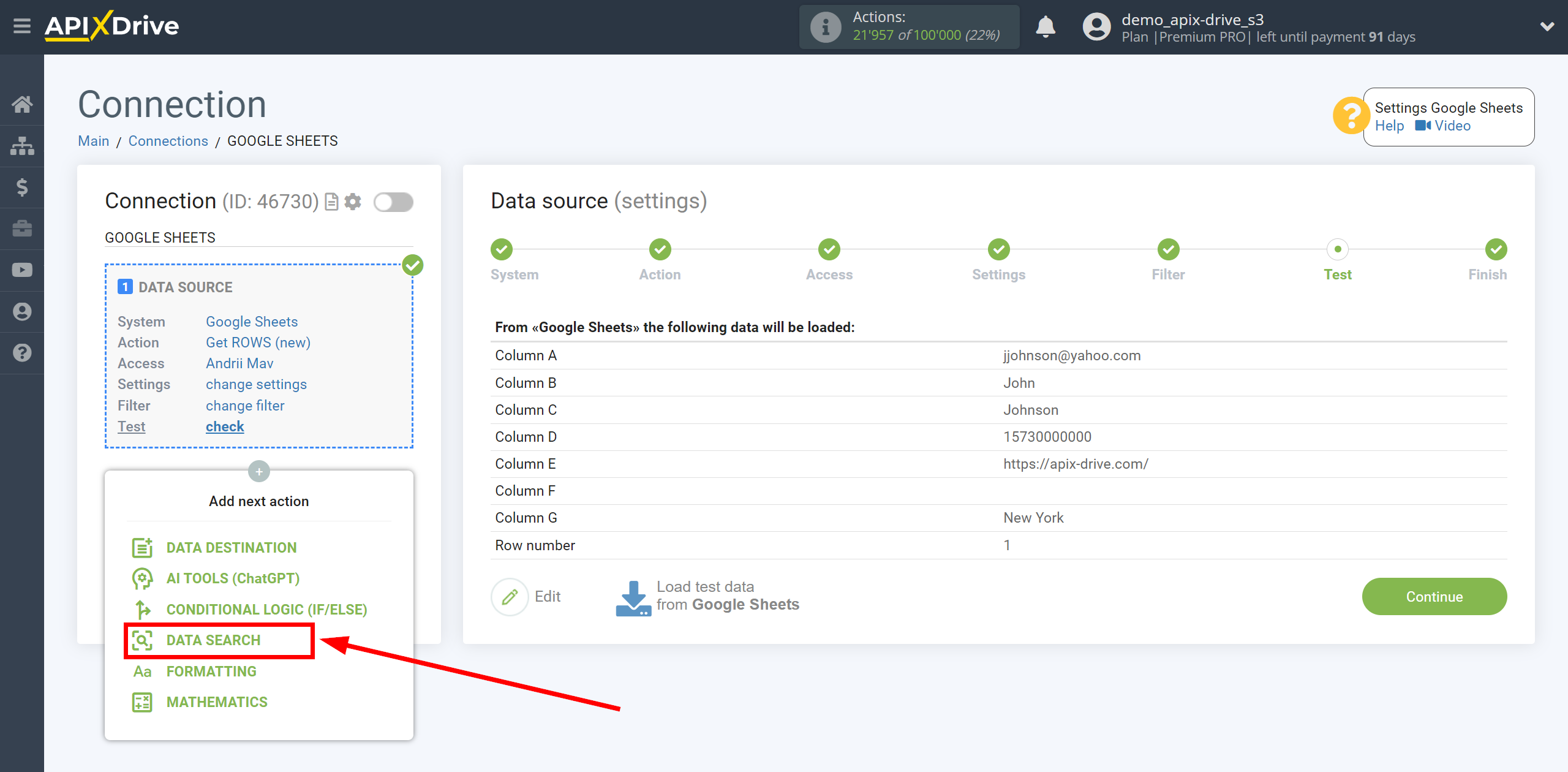
As the system in which the search will be performed, select "Bitly".
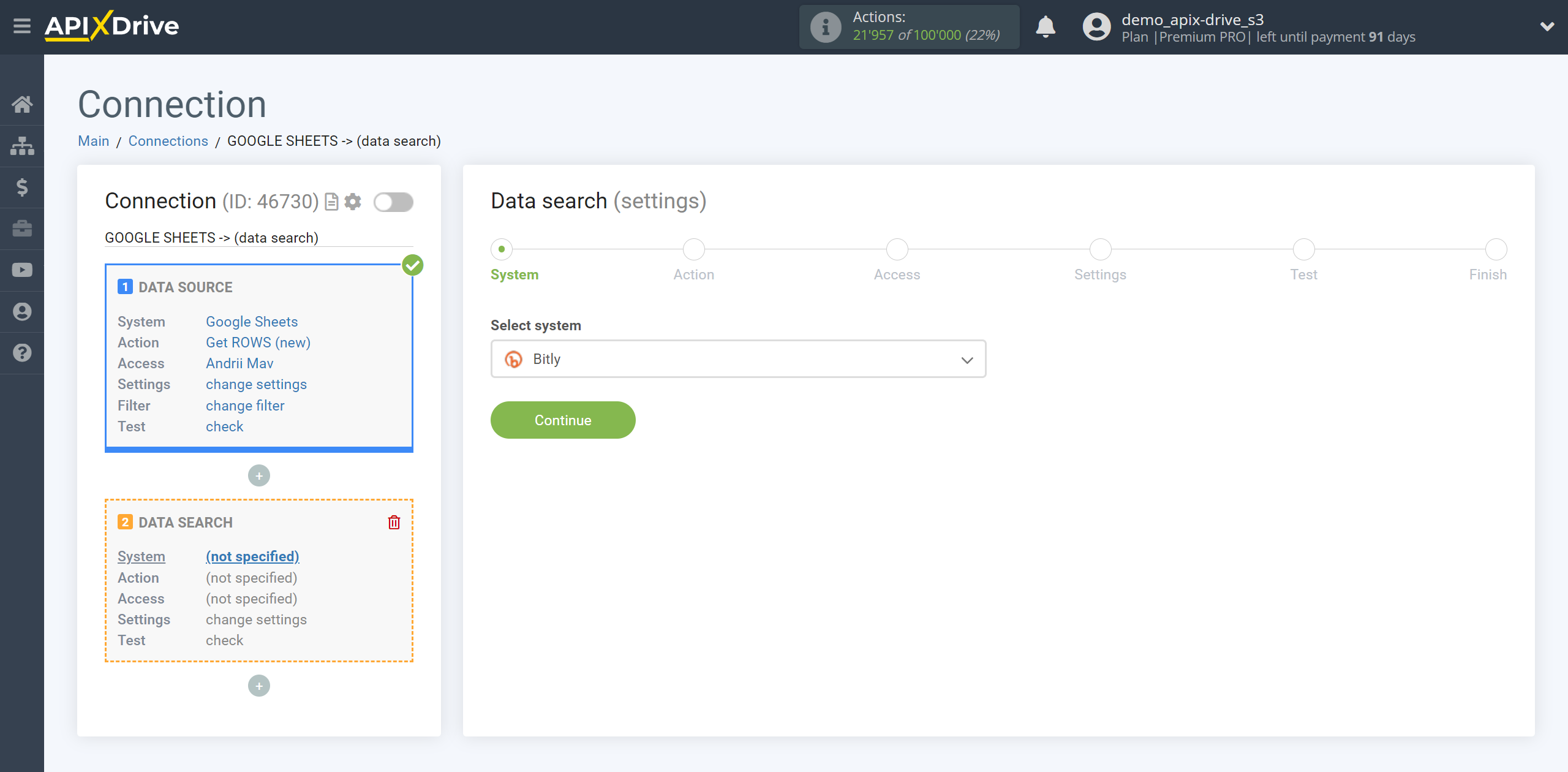
Next, select an action, for example “Compress URL”.
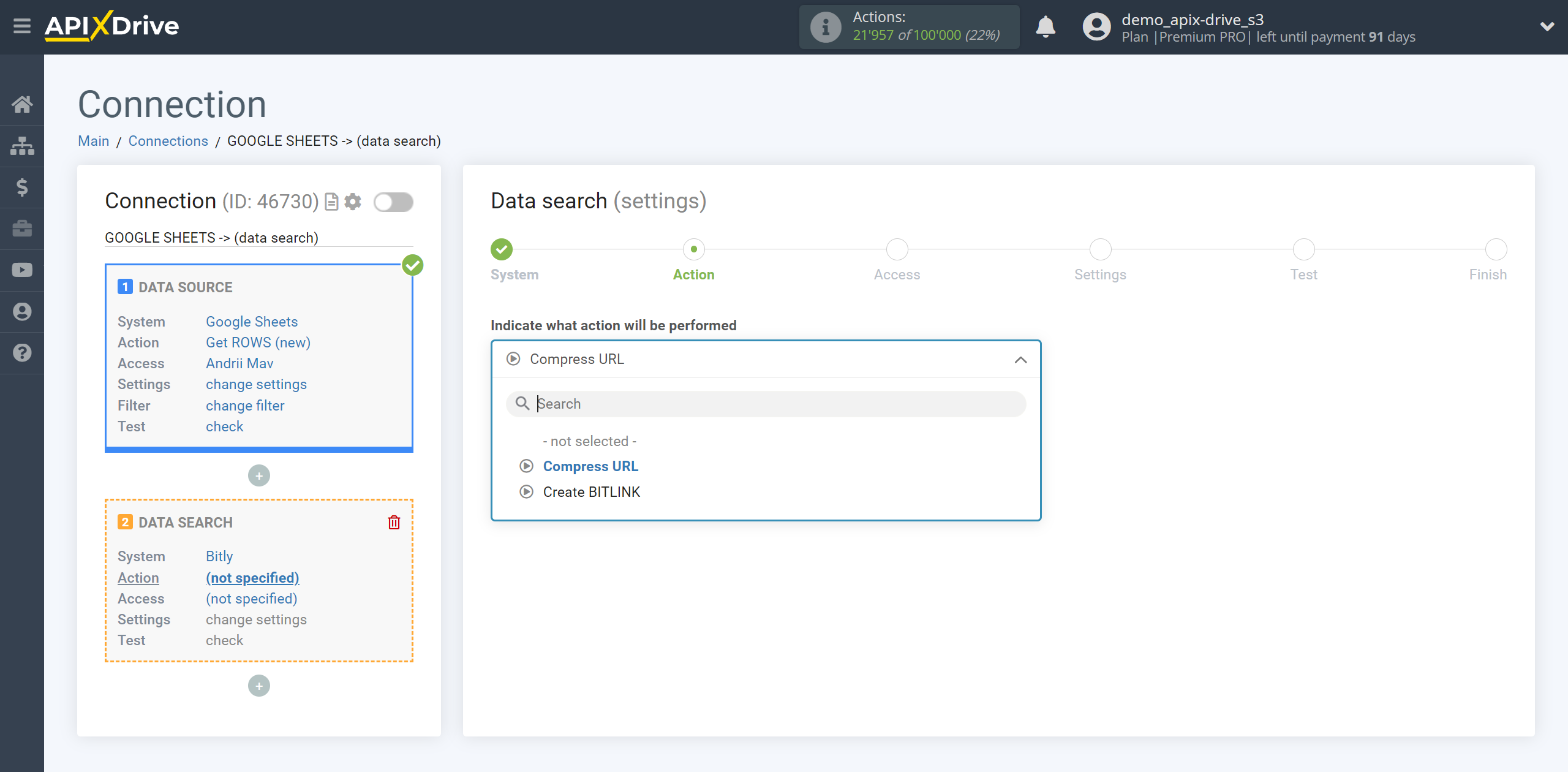
- Compress URL - your Bitly account will compress the link based on data from the Data Source.
- Create Bitlink - a Bitlink will be created in your Bitly account based on data from the Data Source.
The next step is to select a Bitly account.
If there are no accounts connected to the ApiX-Drive system, click “Connect account”.
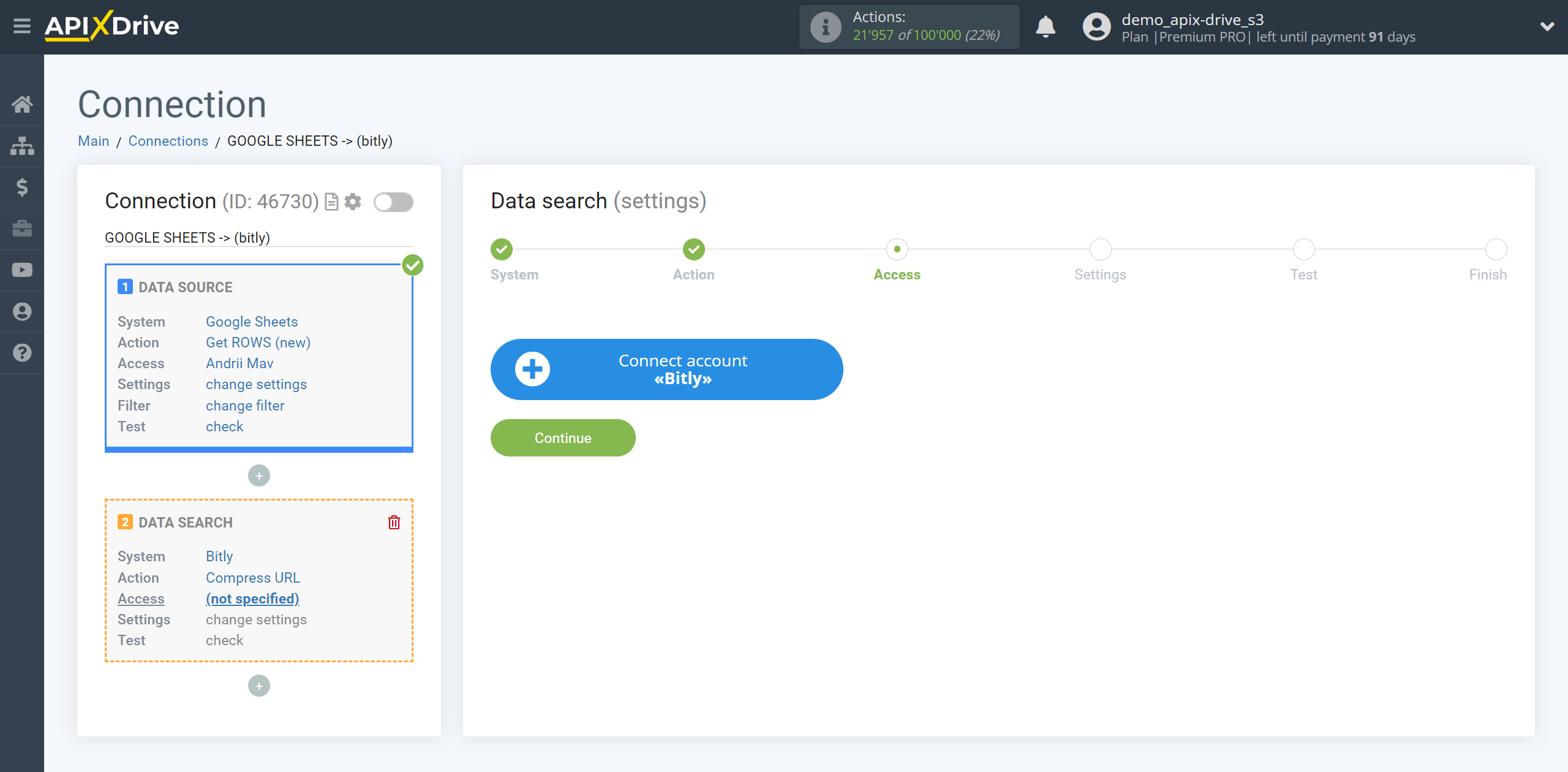
In the window that opens, log in to your Bitly account.
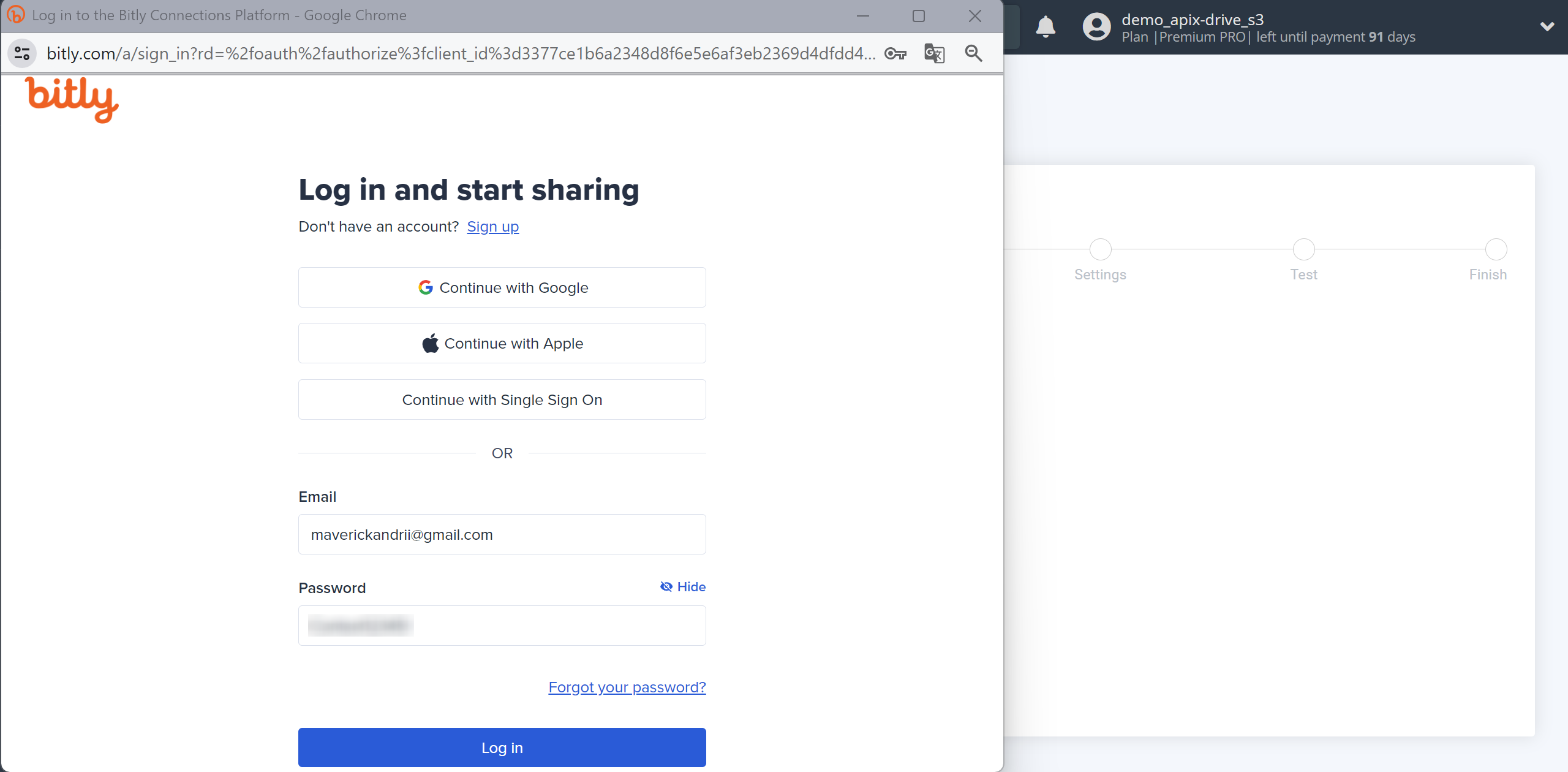
Grant permission to our application to work with your Bitly account.
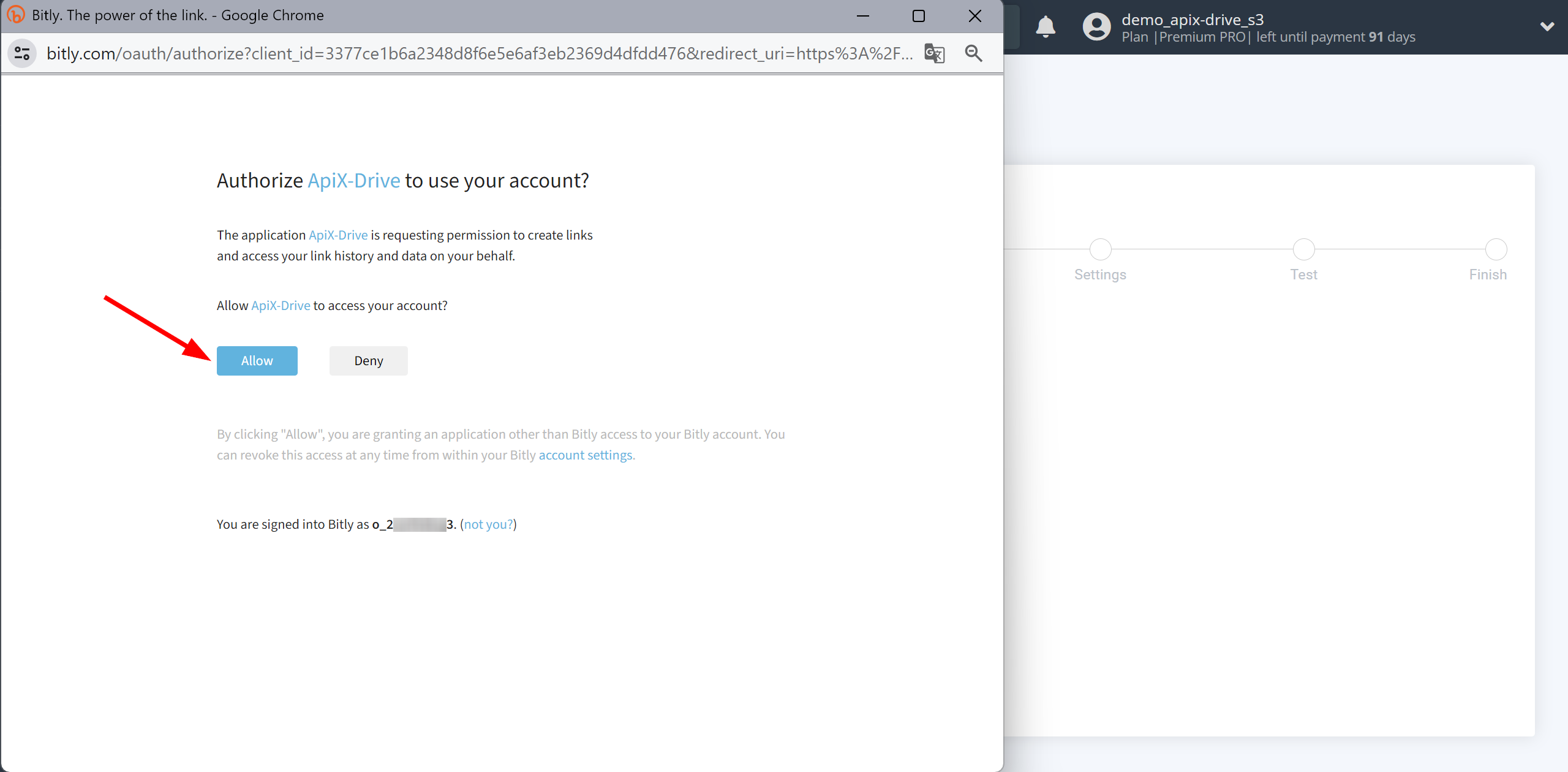
When the connected account appears in the "active accounts" list, select it.
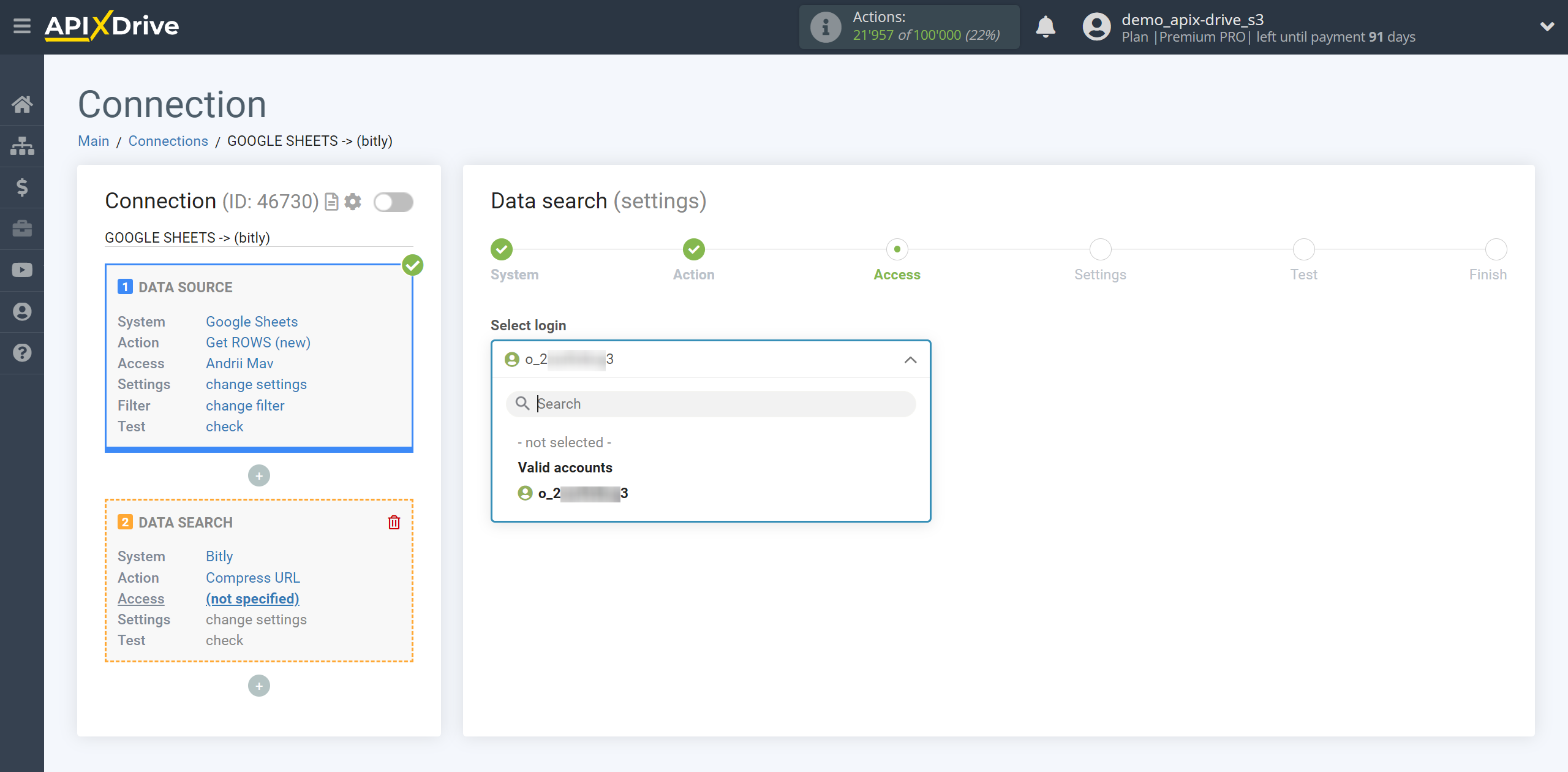
Now specify the Group, Domain and variable in which the shortening link will be passed.
Note! In the "Full URL" field, you must specify a link with "https://".
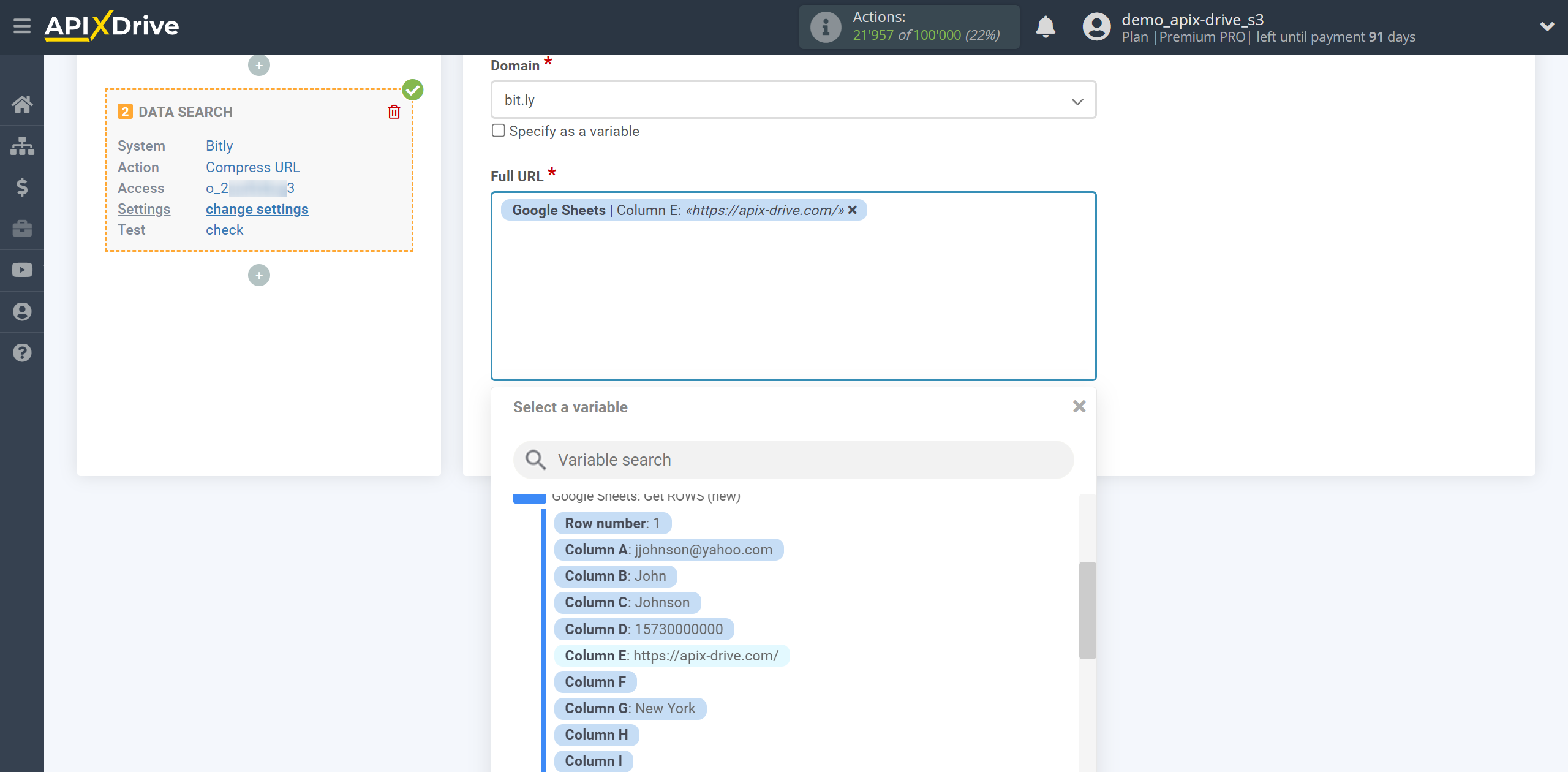
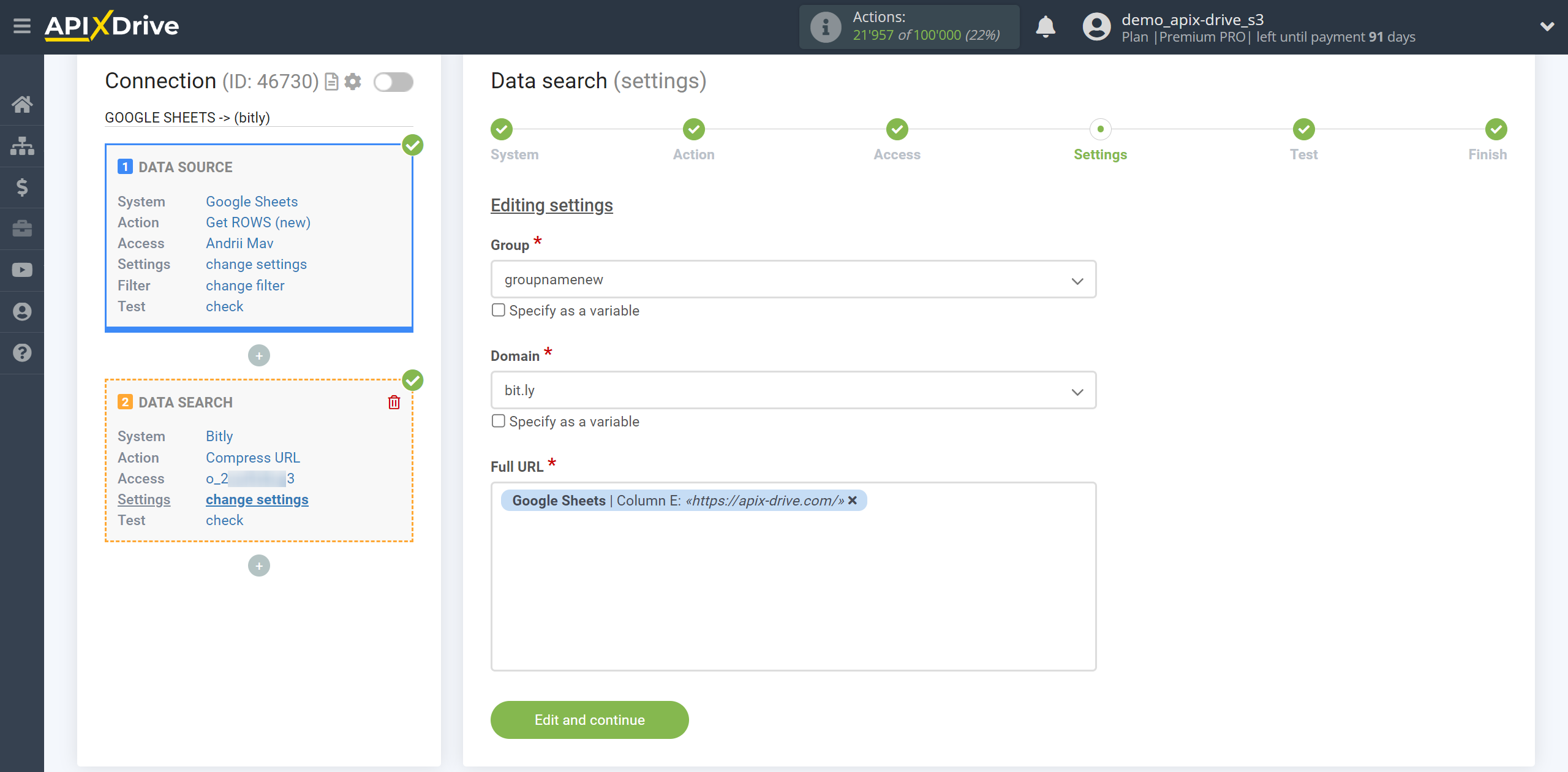
Now you see test data from one of the links. You can pass this data to your reception table.
If the test data does not appear automatically, click “Search in Bitly.”
If you are not satisfied with something, click “Edit”, go back a step and change the search field settings.
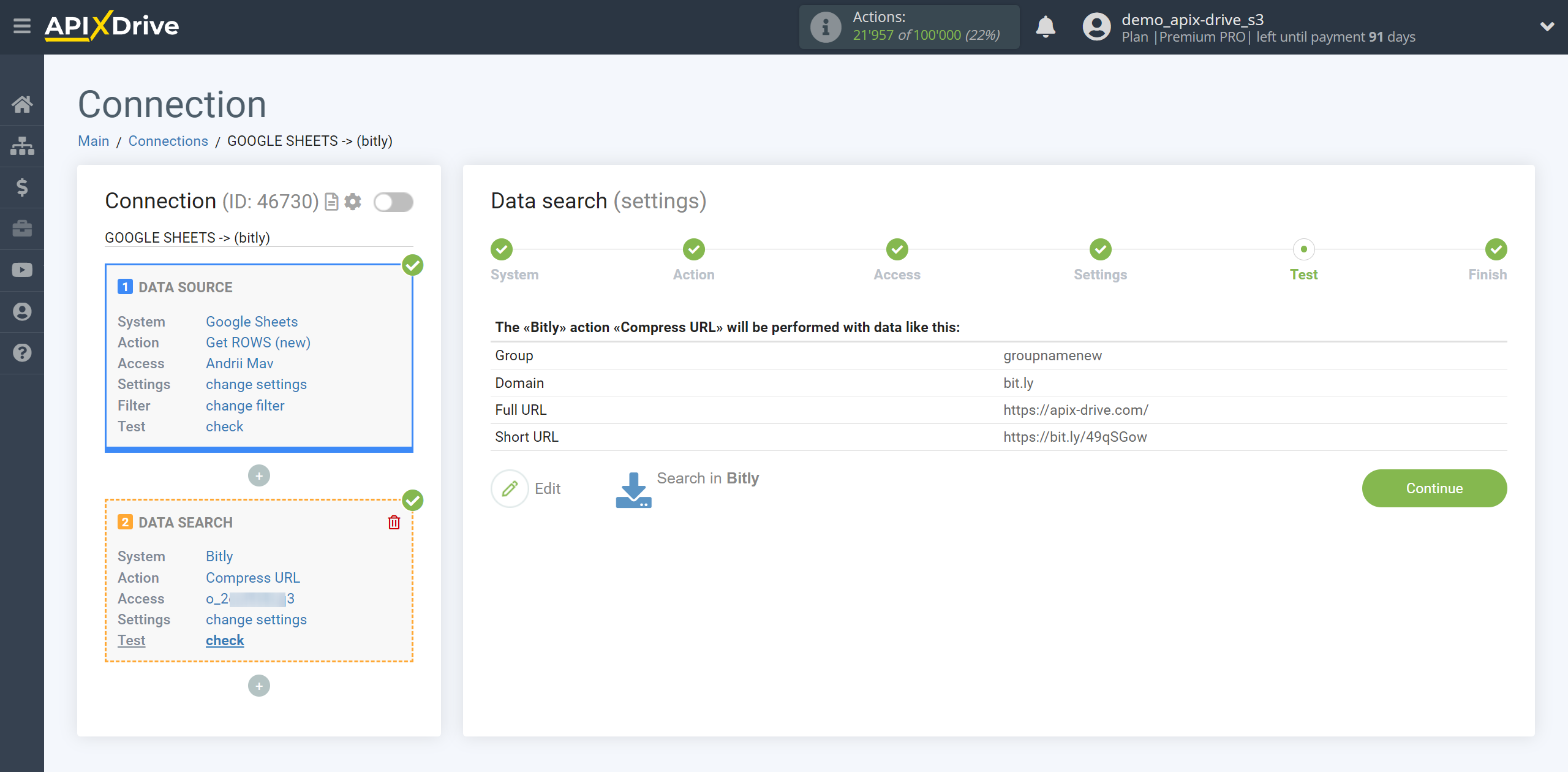
This completes the Data Search setup!
Now we can start setting up Google Sheets as a Data Destination system.
To do this, click "Add Data DESTINATION".
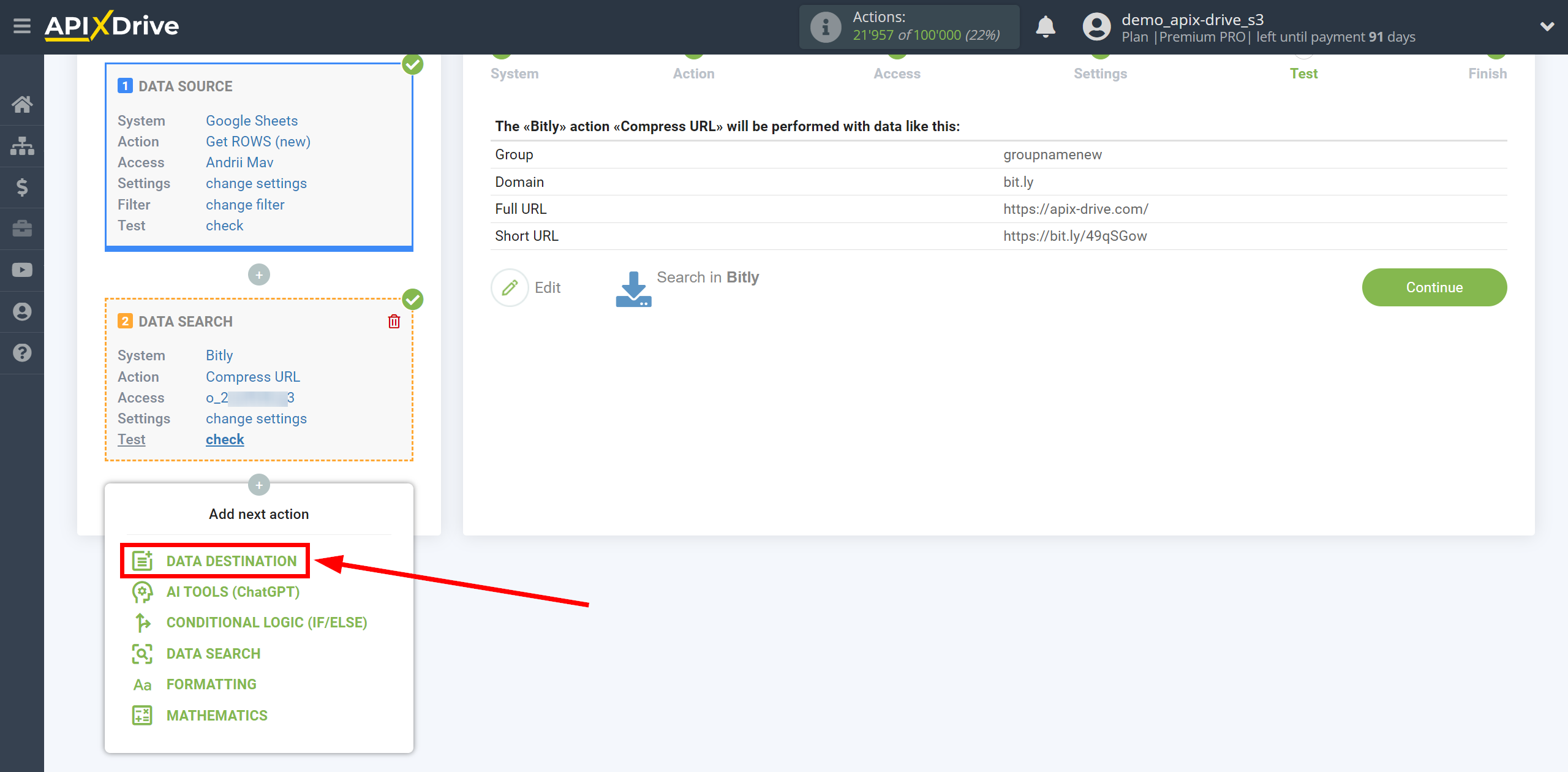
Setup Data Destination system: Google Sheets
Select the system as Data Destination. In this case, you must specify Google Sheets.
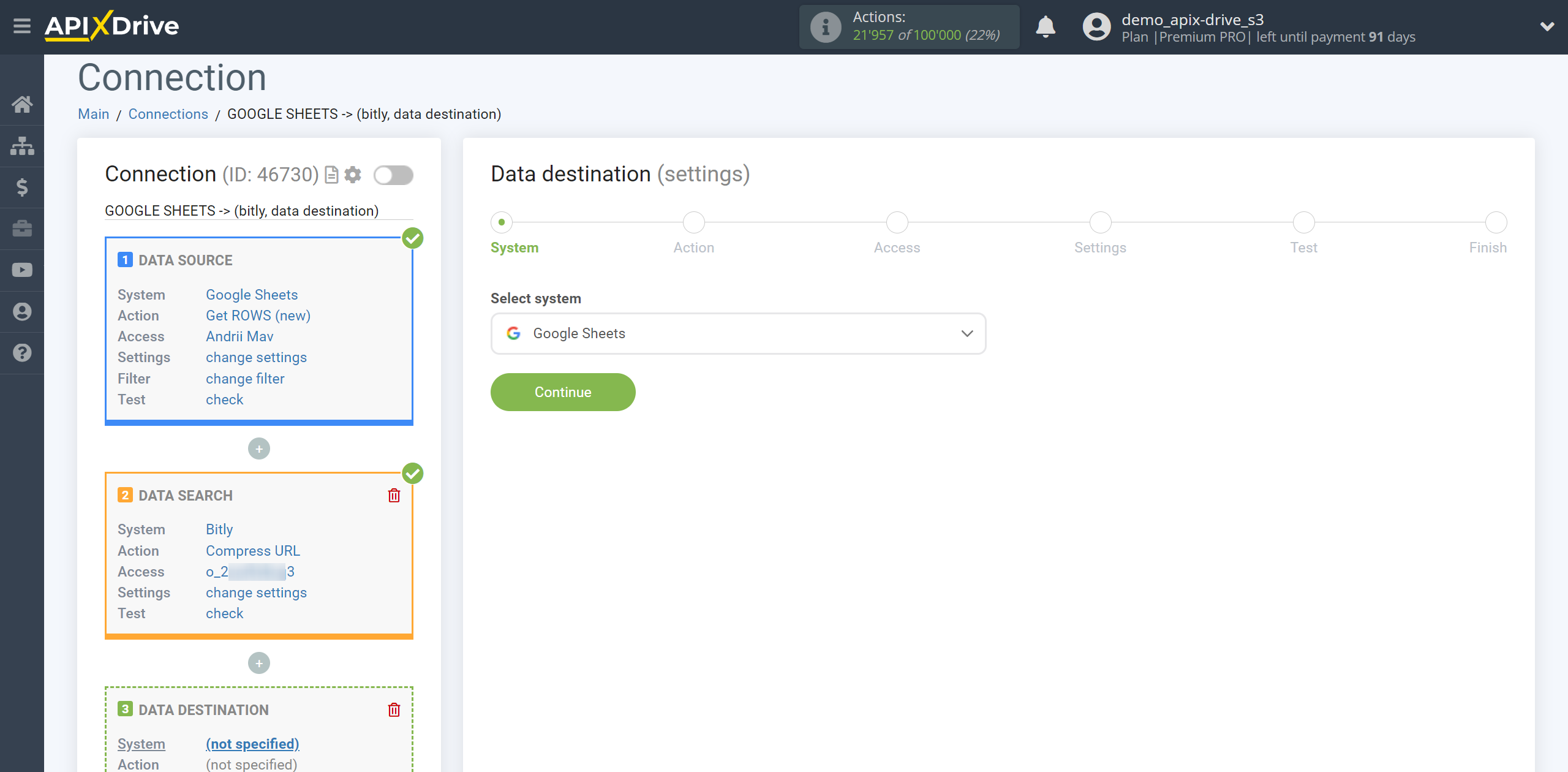
Next, you need to specify the action "Update ROW".
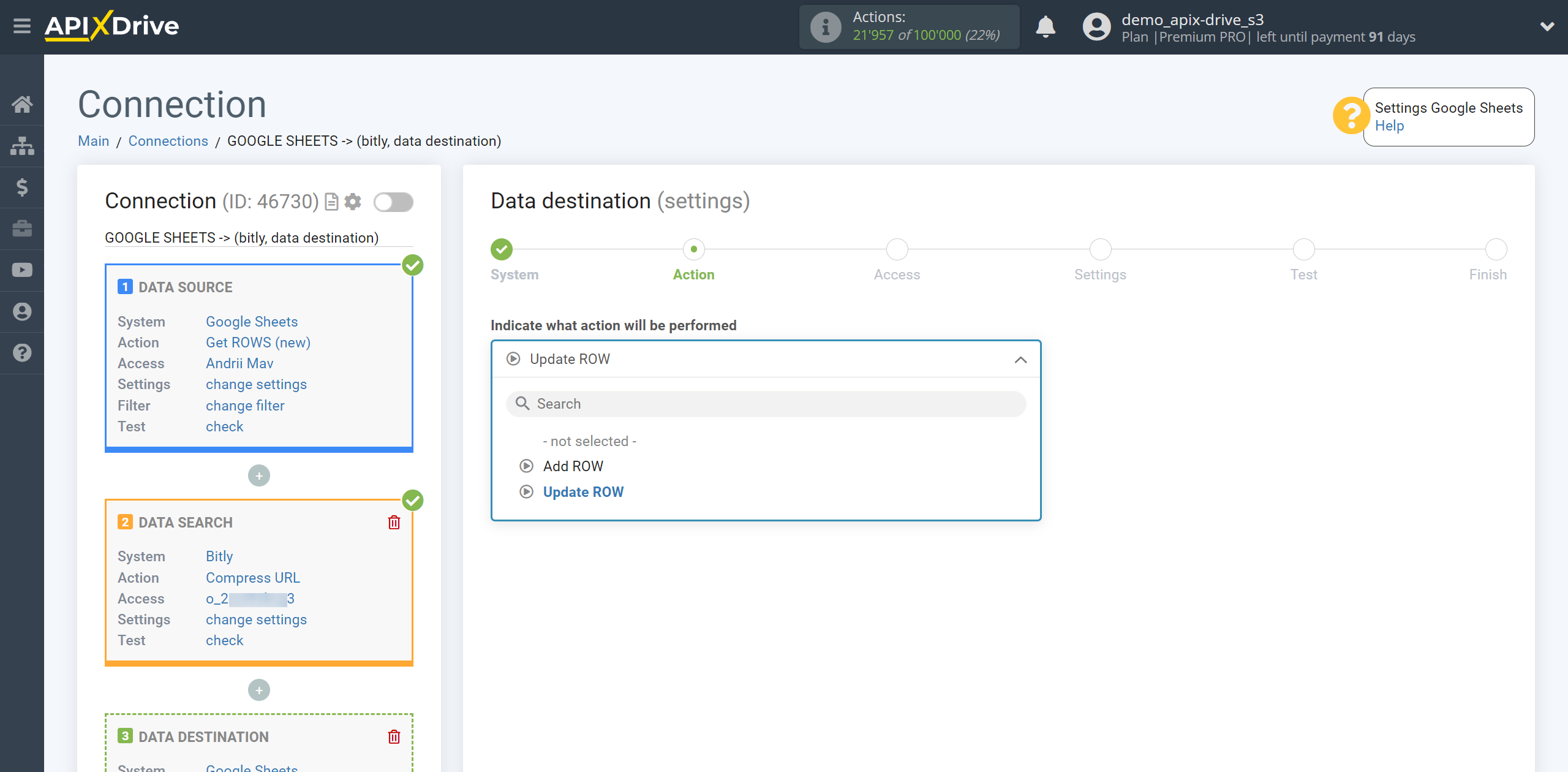
The next step is to select a Google Sheets account into which the shortened links will be transferred. If this is the same account, then we select it.
If you need to connect another login to the system, click “Connect account” and repeat the same steps described when connecting Google Sheets as a Data Source.
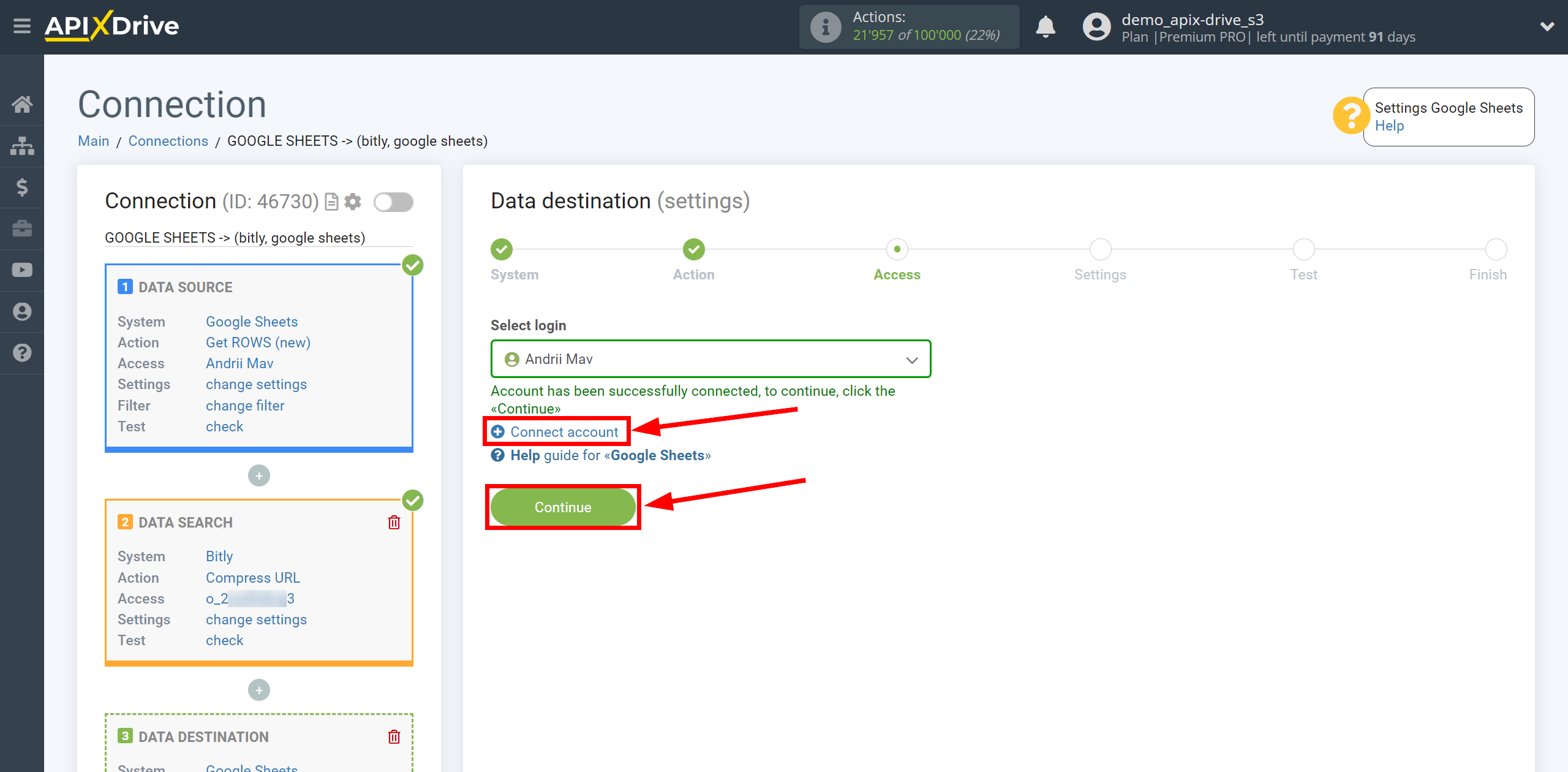
Now you need to select the File (Table) and Sheet in which the row with the shortened link will be updated.
In the "Search Column" field, you need to select the column in which the data will be searched. That is, where to look for data in the table.
Next, in the “Search” field, you need to select a variable from the drop-down list or enter the data manually, by what value the system will search for data, to update the row you need. In our case, we select column “E”, which contains information about the link. The system will update the data in the required row only if the link in it matches.
Also, you need to specify the Search Type, in case several lines with the same links are found:
"First found row" - searching and updating data will occur in the first found row that satisfies the search conditions.
"Last found row" - searching and updating data will occur in the last found row that satisfies the search conditions.
"All found rows" - search and update of data will be performed on all found rows that satisfy the search conditions.
Also specify the option how to Overwrite data:
- Overwrite old data - new data will be written over the old ones.
- Append to old data - new data from the Data Source will be appended to the old data.
Now you need to assign a shortened link variable to the empty column, which we take from the Data Search block. In the future, the data in this column will be updated.
After setting, click “Continue”.
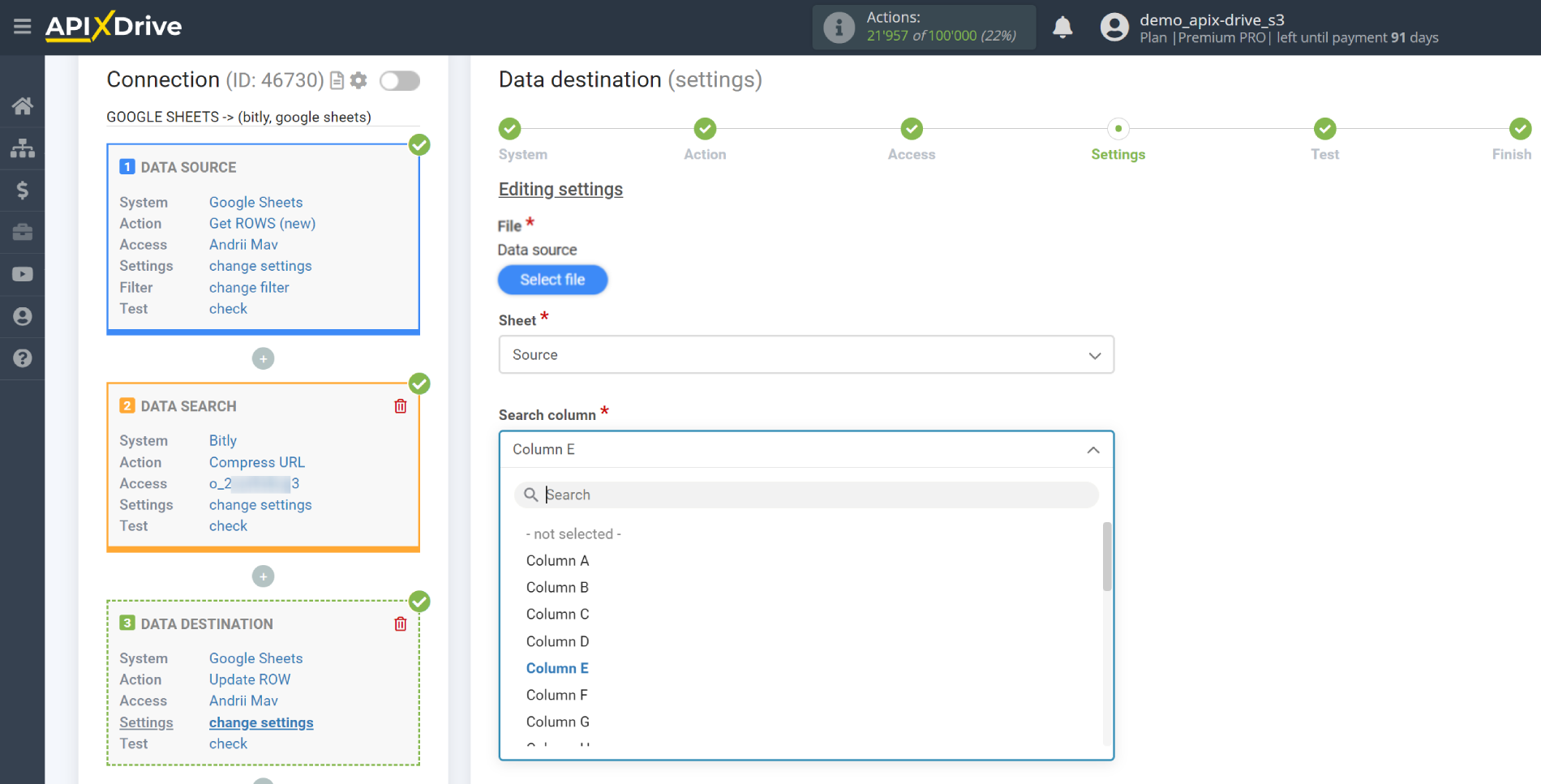
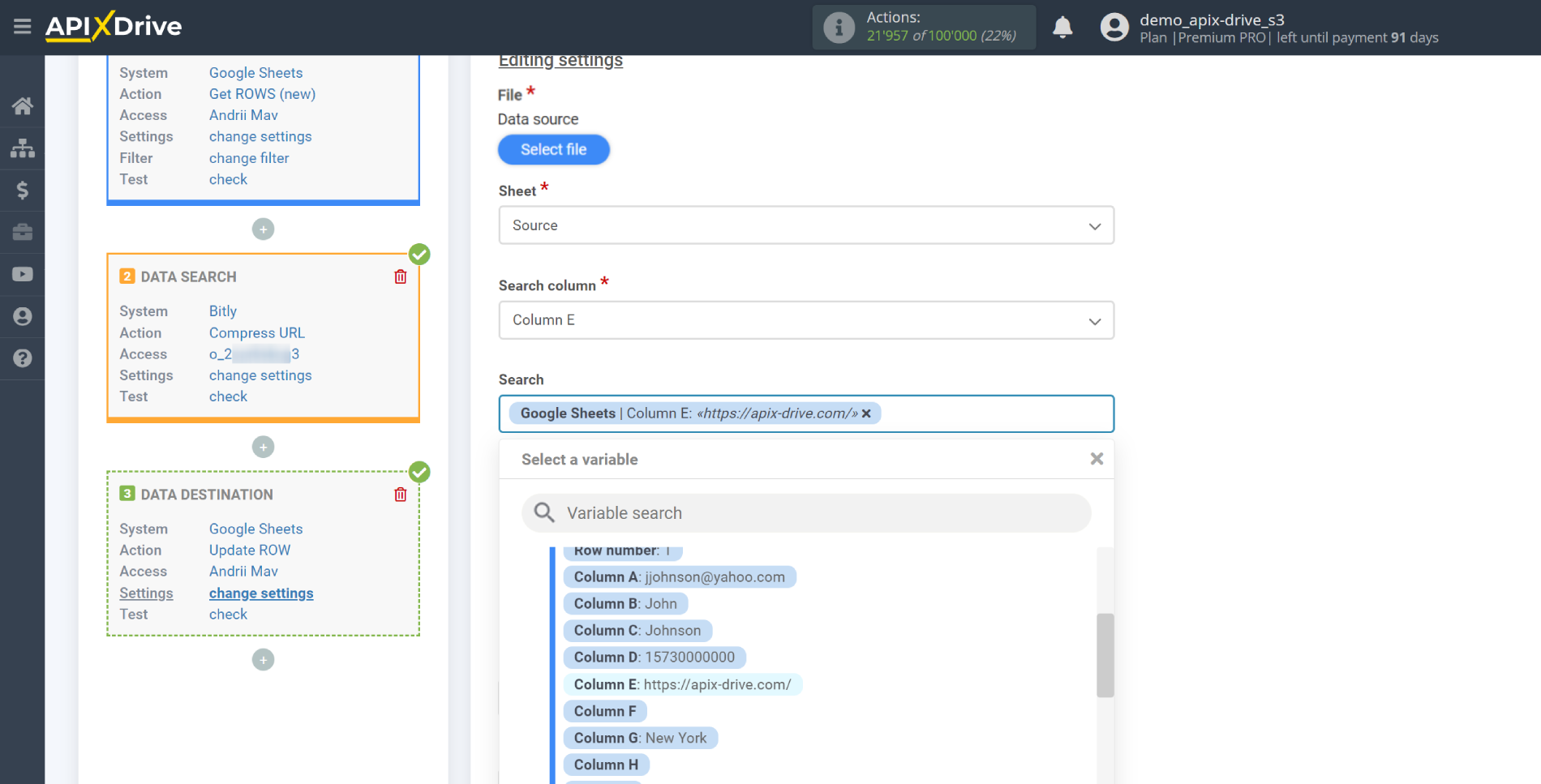
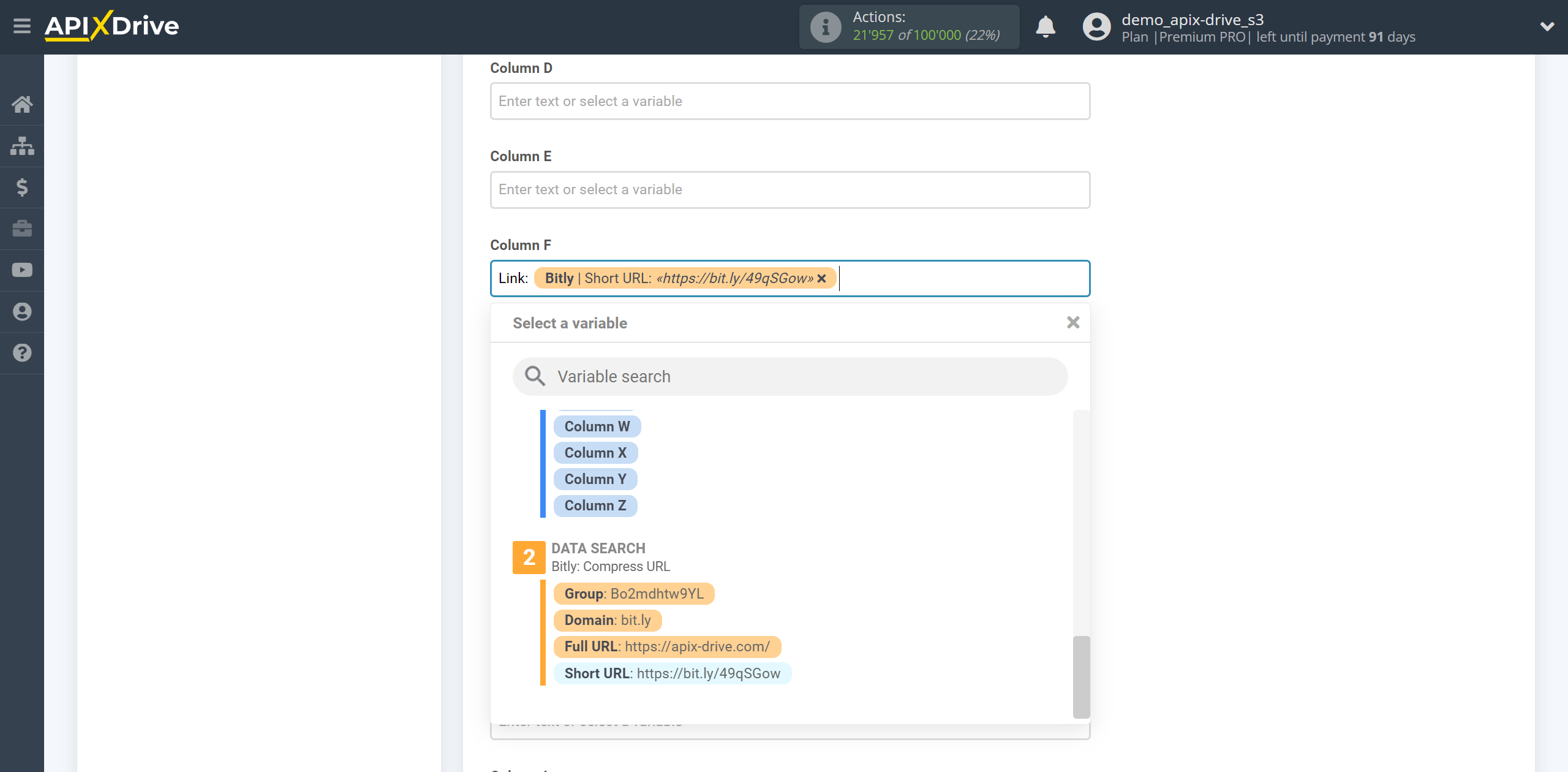
Thus, the Data Search block takes the field in which you have a link in the Data Source, shortens it in the Bitly system and transfers the compressed link to the Data Destination field, for example, in column “F”.
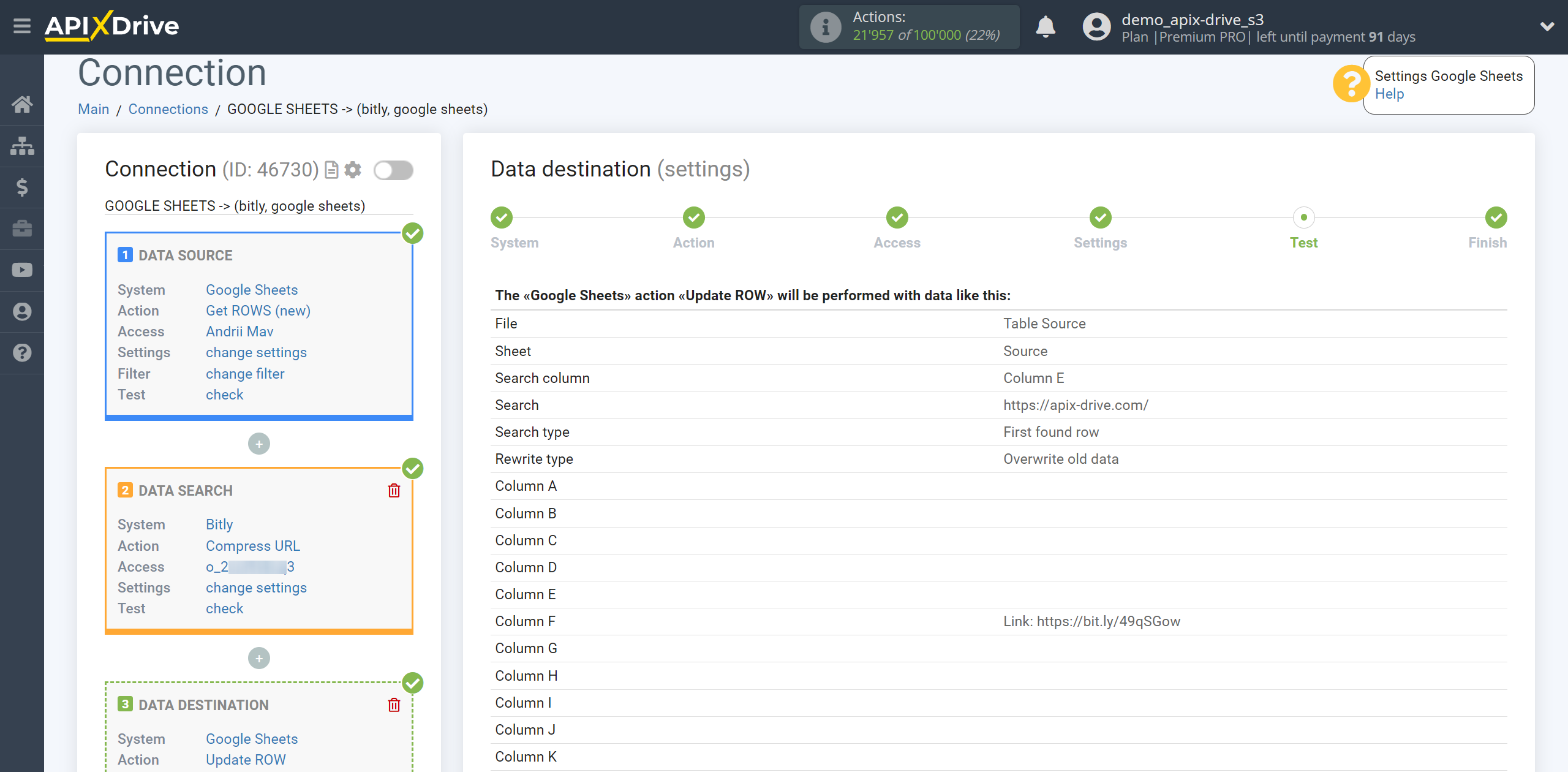
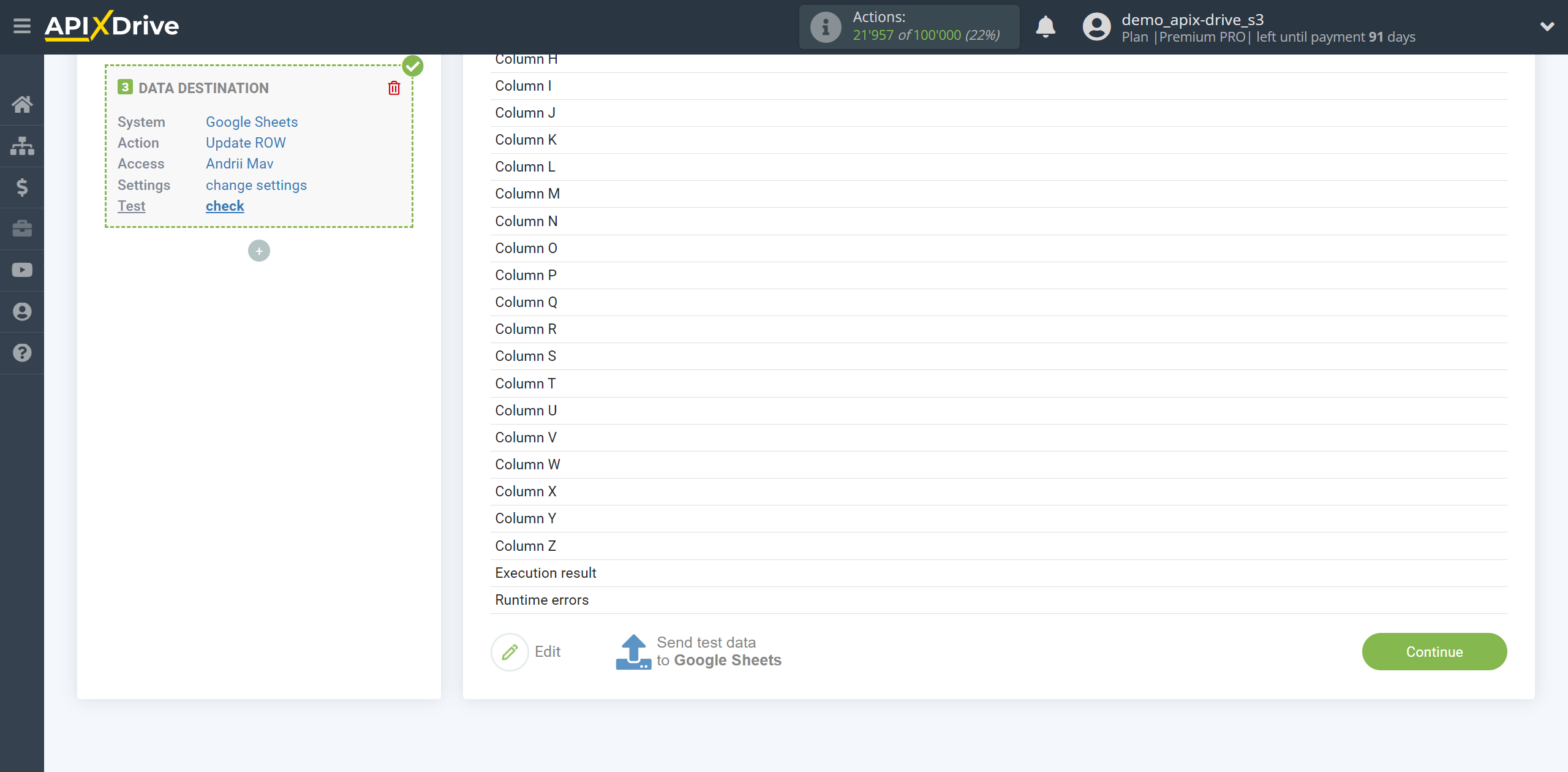
This completes the Data Destination system setup!
Now you can start choosing the update interval and enabling auto-update.
To do this, click "Enable update".
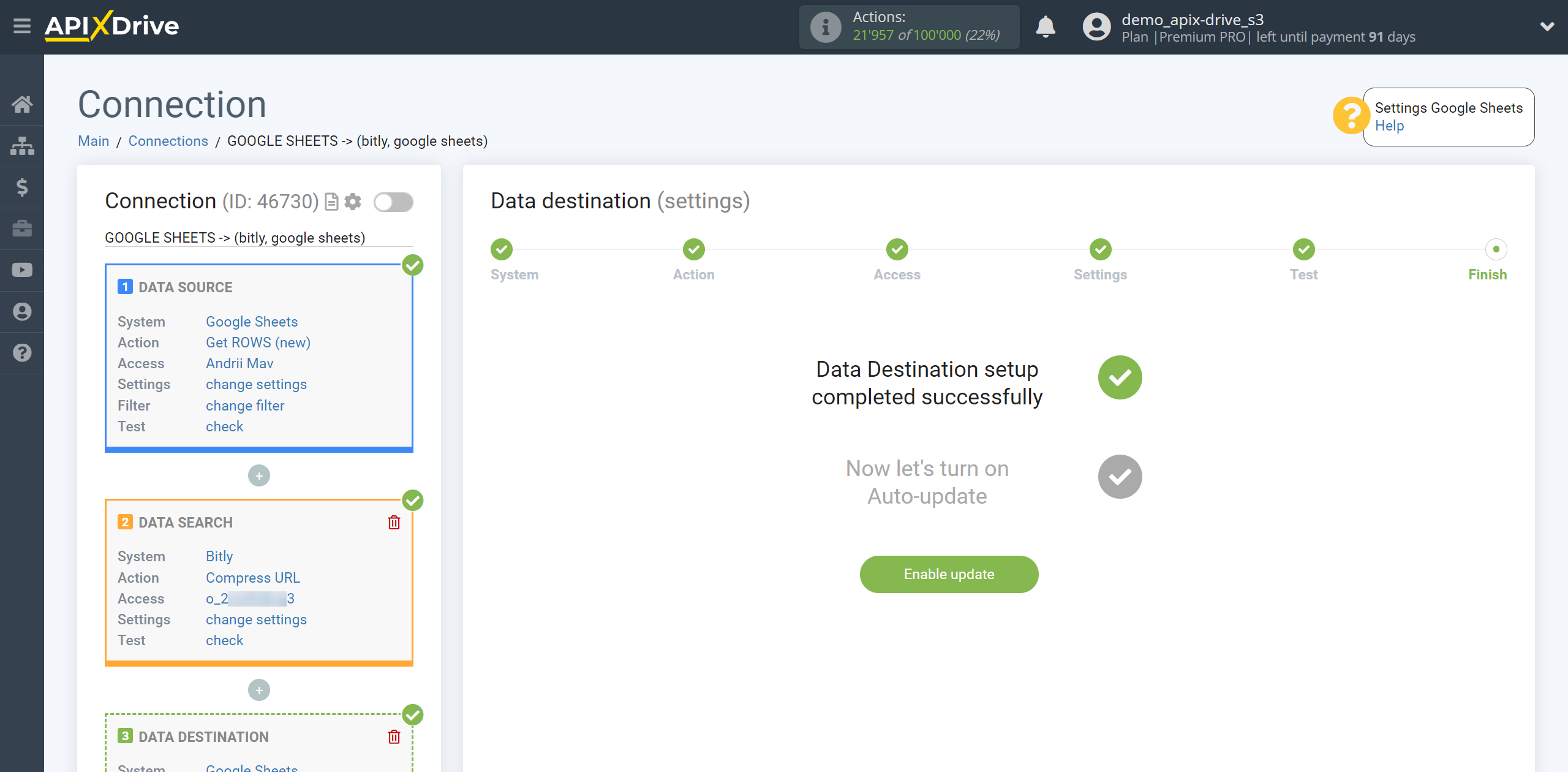
On the main screen, click on the gear icon to select the required update interval or set up scheduled launch. To start the connection by time, select scheduled start and specify the desired time for the connection update to be triggered, or add several options at once when you need the connection to be triggered.
Attention! In order for the scheduled run to work at the specified time, the interval between the current time and the specified time must be more than 5 minutes. For example, you select the time 12:10 and the current time is 12:08 - in this case, the automatic update of the connection will occur at 12:10 the next day. If you select the time 12:20 and the current time is 12:13 - the auto-update of the connection will work today and then every day at 12:20.
To make the current connection transmit data only after another connection, check the box "Update connection only after start other connection" and specify the connection after which the current connection will be started.
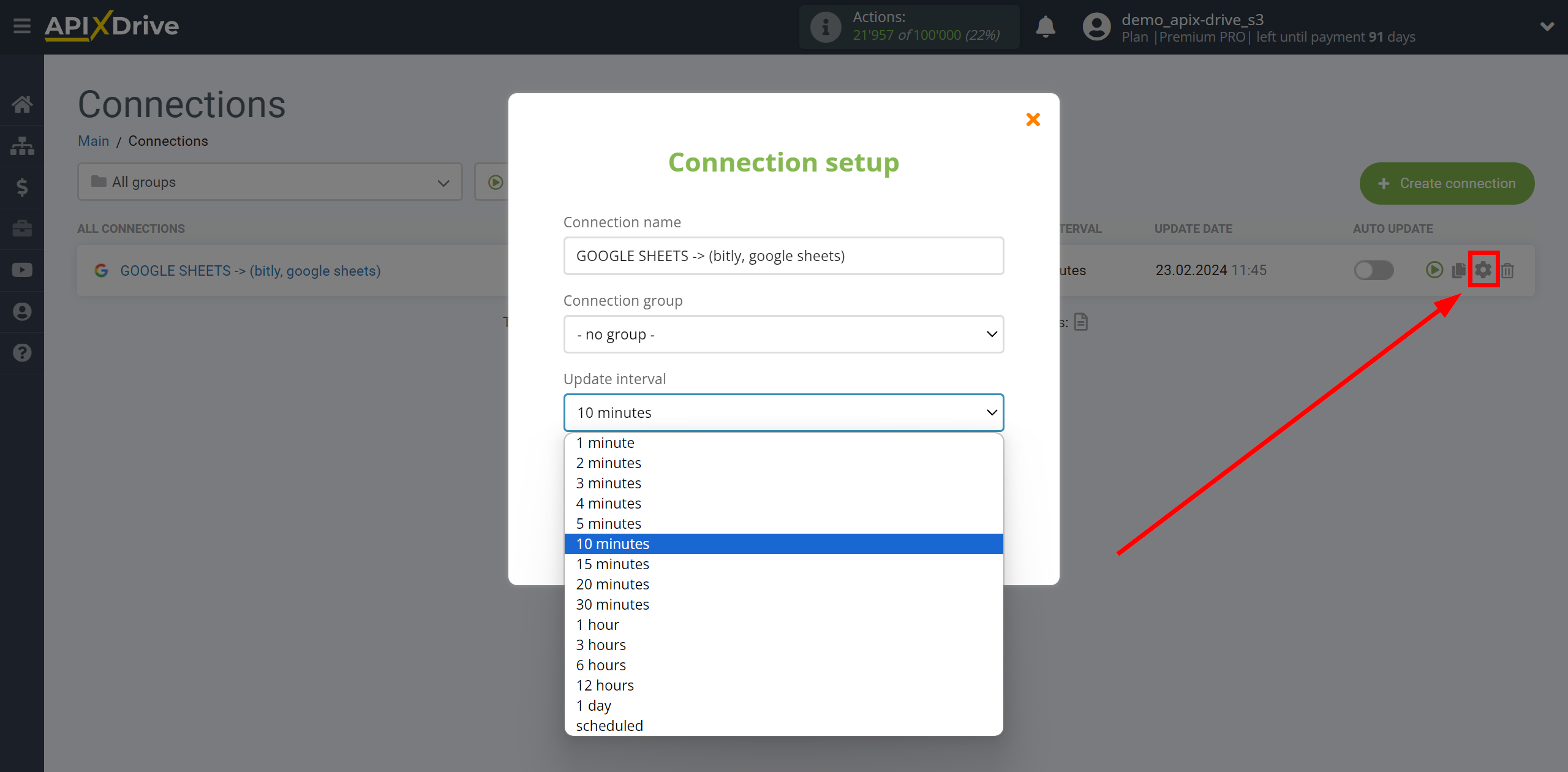
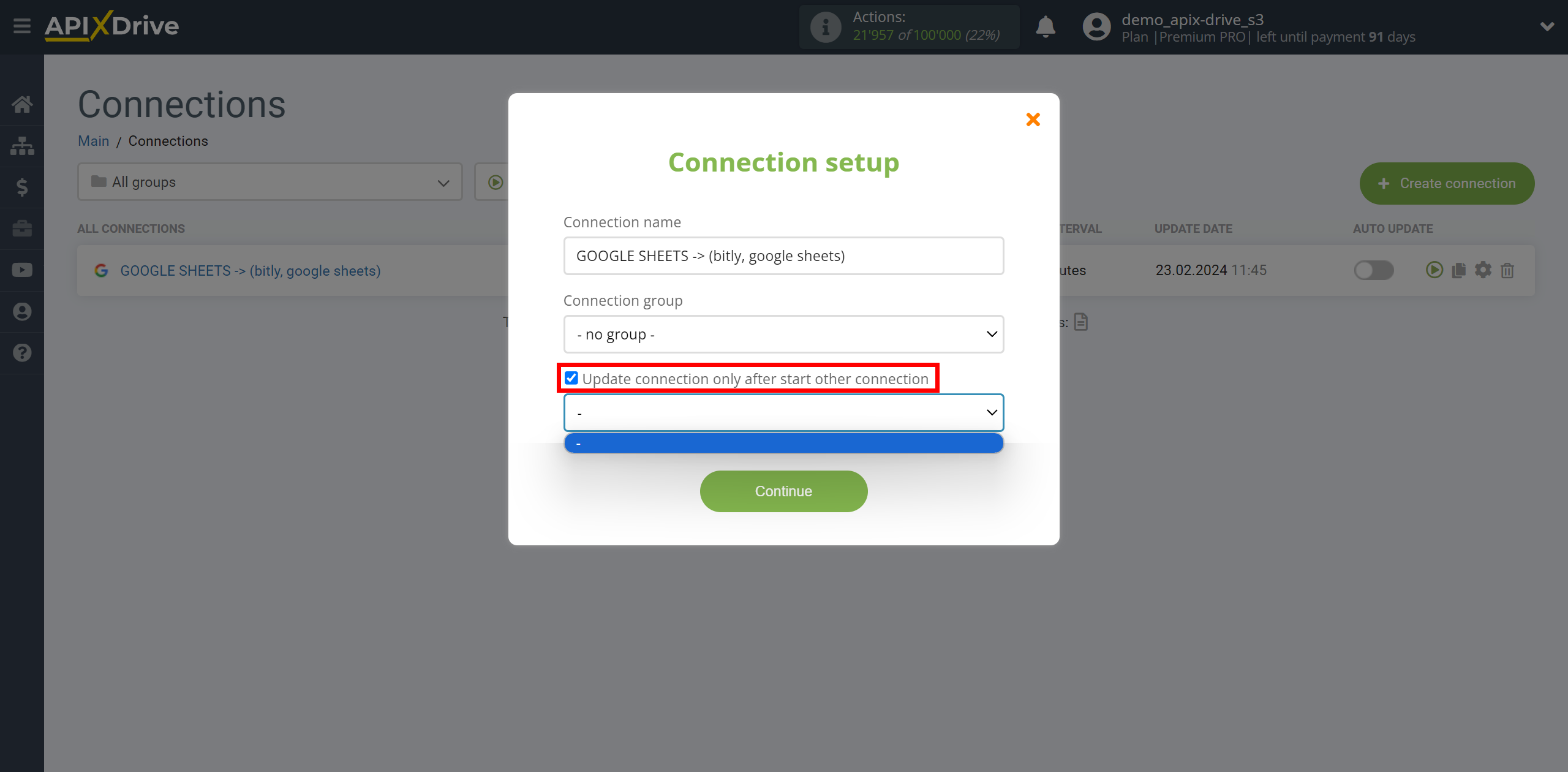
To enable auto-update, switch the slider to the position as shown in the picture.
To force the connection, click on the arrow icon.
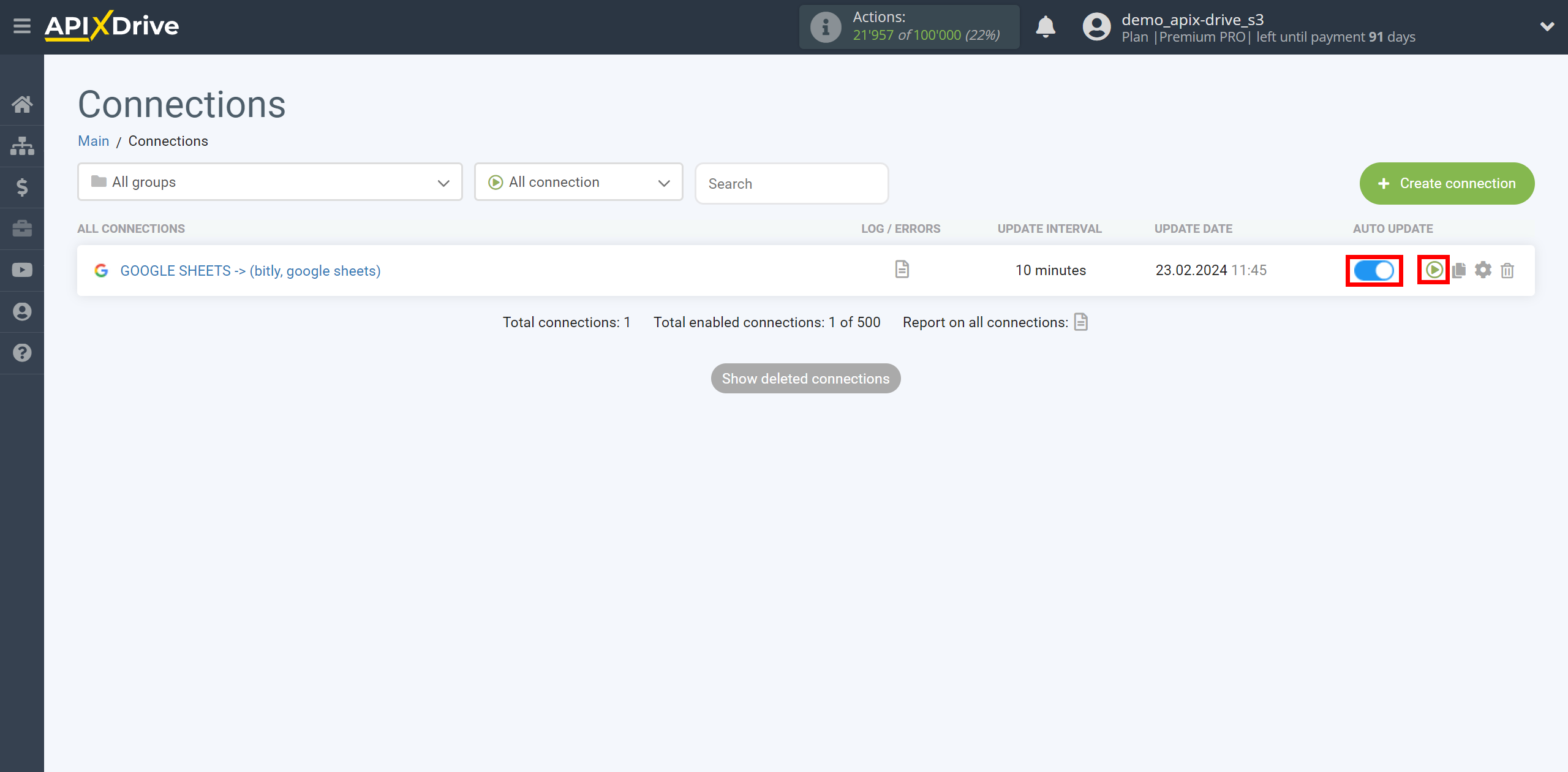
This completes the shorten of links via Bitly in the Data Search block! It's quite simple!
Now you don’t have to worry, ApiX-Drive will do everything on its own!